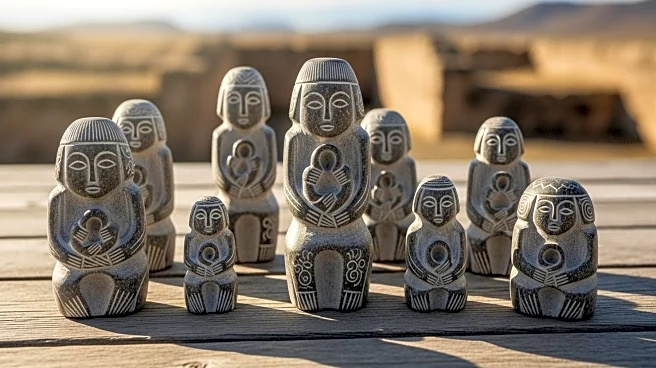What is the story about?
What's Happening?
A study published in the International Journal of Paleopathology examines caregiving practices among ancient Patagonian hunter-gatherers. Led by Dr. Victoria Romano, the research analyzed 3,179 skeletal elements from 25 archaeological sites, focusing on bone trauma. The study found that approximately 20% of individuals experienced bone trauma, with injuries categorized into mild, moderate, and intensive care levels. The findings suggest that these societies had strong social support systems, providing care even in non-sedentary, mobile environments.
Why It's Important?
The study challenges previous assumptions about the limitations of caregiving in mobile hunter-gatherer societies. It highlights the evolution of social structures and compassion in early human communities, suggesting that mobility did not hinder the ability to care for injured members. This research provides valuable insights into the origins of human compassion and cooperation, offering lessons for understanding social dynamics in contemporary societies.
What's Next?
Further research may explore caregiving practices in earlier periods and other regions, potentially revealing how these practices evolved over time. The study opens avenues for examining the role of interpersonal conflict in injury patterns and the impact of social support systems on survival and community cohesion.
Beyond the Headlines
The study raises questions about the ethical dimensions of caregiving and social responsibility in ancient societies. It suggests that compassion and mutual aid were integral to survival, offering a historical perspective on the importance of social support systems. Understanding these practices can inform modern approaches to community care and social welfare.
















